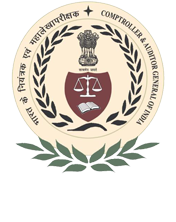Audit Reports

Manipur
Report of 2009 - Performance Audit on Civil of Government of Manipur
Overview
This Report includes five chapters containing five performance reviews, including integrated audit of Agriculture Department. 19 (excluding general paragraphs) paragraphs dealing with the results of audit of selected schemes, programmes, financial transactions of the Government and its commercial and trading activities.
Copies of the performance reviews and paragraphs were sent to the Administrative Heads of the Departments concerned by the Accountant General for furnishing replies within six weeks. All the five reviews were discussed with the concerned Principal Secretaries/ Commissioners/Secretaries and other departmental officers. In respect of two audit paragraphs reply/partial reply of the Government was received and in 17 audit paragraphs, replies had not been furnished by the State Government.
Accelerated Irrigation Benefits Programme was launched with the main objective of accelerating completion of on-going irrigation/multi-purpose projects on which substantial investment had already been made and beyond the resource capability of the State Government. Two major projects, one medium project and 453 minor irrigation projects in the State were includedunder AIBP during 2004-09. Till March 2009, no major and medium projects could be completed, however, only 413 minor irrigation projects were completed though substantial amount of investment of Rs. 1,213.63 crore had been made on these projects. Against targeted irrigation potential of 81.264 hectares, only 41,130 hectares (51 per cent) had been created. Out of the irrigation potential created so far 61 per cent was from minor irrigation projects. Productivity of major crops in the State either remained stagnant or improved marginally during 2004-09, indicating that the programme had little impact on agriculture production of the State. No evaluation studies were carried out to ascertain the success parameters and utilisation of the potential created in the State. As such, the objective of speedy development of irrigation potential and its eventual utilisation for the benefits of the farmers was not achieved to the desired extent in the State due to inherent deficiencies in planning, poor financial management, execution and monitoring of the projects.

